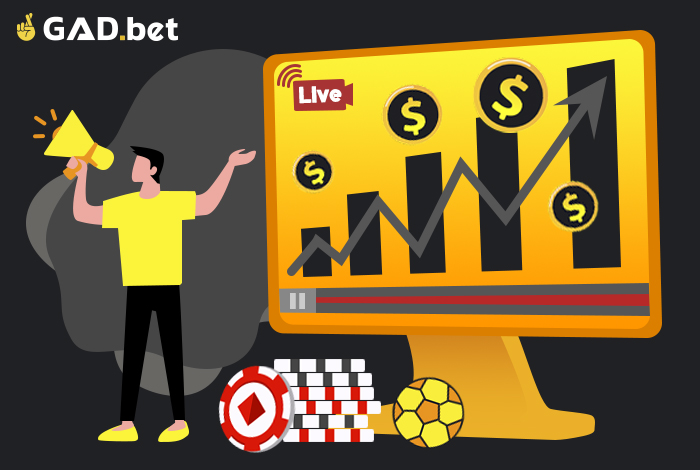Content
Becoming a successful streamer requires dedication, persistence, and the ability to create engaging content that resonates with your audience. Here are some steps to help you get started as a streamer:
- Choose a platform: First, decide which streaming platform best suits your content and target audience. Popular options include Twitch, YouTube Live, Facebook Live, Instagram Live, and TikTok Live. Each platform has its unique features and audience demographics, so consider your content type and goals before making a decision.
- Plan your content: Determine the type of content you want to create. It could be gameplay, live events, art, music, or talk shows. Identify your niche and unique selling points that will help you stand out from the competition.
- Set up your streaming equipment: Acquire the necessary equipment for streaming. This typically includes a computer or smartphone, a webcam, a microphone, headphones, and lighting. If you plan to stream gameplay, you may also need a capture card or compatible gaming console. For advanced setups, consider a green screen, an audio mixer, and professional-grade cameras.
- Choose streaming software: Download and install streaming software to manage your broadcasts. Popular choices include OBS Studio, Streamlabs OBS, and XSplit. Familiarize yourself with the software features and settings to optimize your stream quality and presentation.
- Create your streaming environment: Design a comfortable and visually appealing space for your live broadcasts. Keep your background tidy and uncluttered, and ensure you have proper lighting to look your best on camera.
- Set a schedule: Establish a consistent streaming schedule to help your viewers know when to tune in. A regular schedule fosters viewer loyalty and makes it easier for your audience to incorporate your streams into their routines.
- Promote your streams: Use social media and other online communities to share your streaming schedule, highlights, and updates. Engage with your audience off-stream and encourage them to share your content with others.
- Interact with your audience: During your live broadcasts, make a conscious effort to interact with your viewers. Respond to their comments and questions, and make them feel involved in the experience. Building a strong community around your content is crucial for long-term success.
- Monitor and adapt: Regularly evaluate your streaming performance, viewer feedback, and analytics. Use this information to refine your content, presentation, and promotional strategies. Be willing to adapt and evolve as you learn more about your audience and the streaming landscape.
- Be patient and persistent: Building a successful streaming career takes time, effort, and perseverance. Stay consistent, keep improving your content, and maintain a positive attitude, even when faced with challenges or setbacks.
By following these steps and staying committed to your goals, you can work towards building a successful streaming career and growing a loyal audience.
Why do people stream?

People stream for a variety of reasons, depending on their goals, interests, and motivations. Some common reasons why people choose to stream include:
- Entertainment and self-expression: Streaming allows content creators to share their passions, hobbies, and talents with others. It provides an avenue for self-expression and a way to entertain and connect with like-minded individuals.
- Building a community: Streaming fosters real-time interaction and engagement with viewers, allowing streamers to create and nurture a community around their content. This sense of belonging and camaraderie can be rewarding and fulfilling for both streamers and their audience.
- Education and information: Some streamers share their expertise and knowledge on specific topics, helping others learn new skills or stay informed about current events. Streaming provides a dynamic and interactive way to teach and learn, making it an appealing medium for educational content.
- Networking and collaboration: Streaming can open doors for networking and collaboration opportunities with other content creators, industry professionals, and fans. Building a network of connections can lead to exciting new projects, partnerships, and growth opportunities.
- Monetization and career: Many people stream with the goal of generating income through advertising, sponsorships, donations, and other monetization options. For some, streaming can become a full-time career, allowing them to make a living by doing what they love.
- Personal growth and development: Streaming can help individuals develop valuable skills, such as public speaking, time management, content creation, and marketing. These skills can be beneficial both personally and professionally.
- Fun and socialization: Streaming can be a fun and engaging way to socialize, especially for people who enjoy interacting with others online. It provides a unique opportunity to connect with people from all over the world and share experiences in real-time.
- Raising awareness and activism: Some streamers use their platform to raise awareness for social, political, or environmental issues they care about. Streaming can be an effective way to reach a large audience and inspire change.
Ultimately, the reasons why people stream vary widely, and many streamers may have a combination of motivations. Streaming can be a rewarding and enriching experience for both content creators and their audiences, providing an interactive and immersive way to share and connect with others.
Why is it profitable to bet on streaming?
Streaming has become increasingly popular in recent years, and as a result, it has become a profitable industry for both content creators and businesses alike. There are several reasons why betting on streaming can be profitable:
- Growing industry: Streaming is a rapidly growing industry, with millions of people subscribing to services like Netflix, Hulu, Amazon Prime Video, and Disney+. This growth is expected to continue in the coming years, which means that there is ample opportunity for businesses to invest in this sector.
- Targeted advertising: Streaming platforms allow for highly targeted advertising, which means that businesses can reach their ideal audience more effectively. This results in a higher return on investment (ROI) for advertising dollars spent.
- Subscription-based revenue: Many streaming platforms operate on a subscription-based revenue model, which means that they generate recurring revenue from their customers. This type of revenue model is highly desirable for businesses, as it provides a more predictable and stable revenue stream.
- Original content: Streaming platforms are investing heavily in creating original content, which is a major draw for subscribers. Original content is exclusive to the platform, which makes it more valuable and helps to retain subscribers.
- Cost-effective: Streaming is often more cost-effective than traditional cable TV, which makes it an attractive option for consumers. As more people cut the cord and move towards streaming, businesses can take advantage of this trend to reach a larger audience.
Overall, streaming is a profitable industry due to its rapid growth, targeted advertising, subscription-based revenue, original content, and cost-effectiveness. As more people continue to adopt streaming as their primary entertainment source, businesses that invest in this sector are likely to see significant returns.
How to become a streamer on twitch?
To become a streamer on Twitch, follow these steps:
- Create a Twitch account: Go to the Twitch website and create an account if you don’t already have one. You will need to choose a username and provide some basic information to create your account.
- Set up your channel: Once you have created your account, you will need to set up your channel. Click on your username in the top-right corner of the Twitch homepage and select “Channel” from the dropdown menu. From there, you can customize your profile, add a profile picture and banner, and set up your stream layout.
- Get streaming software: To stream on Twitch, you will need software that can capture your gameplay and broadcast it to the platform. OBS Studio is a popular free option that many streamers use, but there are other options available as well.
- Set up your streaming software: Once you have downloaded and installed your streaming software, you will need to set it up to work with Twitch. You will need to provide your Twitch stream key, which you can find on your Twitch dashboard.
- Start streaming: Once you have everything set up, you can start streaming! Choose the game you want to play and start broadcasting your gameplay to your audience.
- Build your audience: Growing your audience takes time and effort. Consistency is key, so make sure to stream regularly and at consistent times. Engage with your audience by responding to chat messages and building a community around your channel.
- Promote your channel: Use social media and other online platforms to promote your Twitch channel and reach new viewers. Collaborate with other streamers, participate in Twitch events, and engage with the broader Twitch community to grow your audience.
Remember that becoming a successful streamer on Twitch takes time, effort, and dedication. Keep practicing, engaging with your audience, and building your brand to achieve your streaming goals.
How to become a streamer on Gad bet?
Earning money from gambling bets in Gad Bet is not difficult. Just go to a stream you like and place bets on the outcome of an event. You can also place bets in our casino.
If you want to learn how to earn money from gambling, you should understand that bets are always associated with the risk of losing money, and there are no guarantees of winning. However, there are several things you can do to increase your chances of success:
- Study statistics and analyze data. The more you know about teams, players, and other factors that influence the outcome of a game, the greater your chances of making an accurate prediction.
- Place reasonable bets. Do not bet too much money on one game or event to avoid significant losses.
- Use betting strategies. There are various betting strategies that you can use to increase your chances of success, including fixed betting strategies, progressive betting strategies, etc.
- Follow news and updates. News and updates can influence the outcome of a game, so stay updated on the latest news and information.
- Play responsibly. Do not bet more than you can afford, and do not gamble under the influence of alcohol or other substances to avoid making impulsive decisions.
Remember that betting is associated with risk, so it is important to always gamble responsibly.
Who are the biggest twitch streamers?
The biggest Twitch streamers in terms of followers and viewership are constantly changing, as the platform continues to grow and new creators rise in popularity. However, here are some of the biggest Twitch streamers as of my knowledge cutoff in 2021:
- Ninja – A popular Fortnite streamer, he has over 16 million followers on Twitch.
- shroud – A former professional CS:GO player, he has over 9 million followers on Twitch.
- Tfue – A popular Fortnite streamer, he has over 9 million followers on Twitch.
- Myth – A popular Fortnite streamer, he has over 7 million followers on Twitch.
- pokimane – A variety streamer, she has over 7 million followers on Twitch.
- summit1g – A variety streamer, he has over 7 million followers on Twitch.
- TimTheTatman – A variety streamer, he has over 6 million followers on Twitch.
- xQc – A variety streamer and former Overwatch professional player, he has over 5 million followers on Twitch.
- NICKMERCS – A popular Fortnite and Call of Duty streamer, he has over 4 million followers on Twitch.
- Valkyrae – A variety streamer, she has over 4 million followers on Twitch.
Keep in mind that these numbers may have changed since my knowledge cutoff date in 2021, and new streamers may have risen to prominence on the platform.
How can streamers earn real money?
Streamers can earn real money on Twitch through several ways:
- Subscriptions: Twitch users can subscribe to a streamer’s channel for a monthly fee, which provides them with benefits such as ad-free viewing and access to exclusive content. Streamers receive a portion of the subscription revenue, with the exact amount depending on their partnership status with Twitch.
- Donations: Viewers can donate money to streamers through various means, such as using Twitch’s built-in donation system or third-party platforms like PayPal. Some viewers may donate to support their favorite streamers or to have their message displayed on stream.
- Ad revenue: Twitch displays ads during streams, and streamers earn a portion of the revenue generated by those ads. The exact amount of ad revenue earned depends on factors such as the number of viewers and the length of the stream.
- Sponsorships: Streamers can earn money through sponsorships with companies that want to promote their products or services. These sponsorships can take the form of product placements, brand deals, or sponsored content.
- Affiliate marketing: Streamers can earn money through affiliate marketing by promoting products or services on their channel and receiving a commission for any sales made through their unique referral link.
- Merchandise sales: Streamers can sell merchandise such as t-shirts, hoodies, and other branded items to their fans, with a portion of the sales revenue going to the streamer.
Overall, the amount of money a streamer can earn depends on several factors, including their viewership, engagement, and monetization strategies. Successful streamers often employ a combination of these methods to maximize their earnings on the platform.
Highest Paid Streamers
As of my knowledge cutoff date in 2021, here are some of the highest paid streamers in the world:
- Tyler “Ninja” Blevins: With over 16 million followers, Ninja is one of the most popular Twitch streamers. He reportedly earned $10 million in 2018 from streaming, sponsorships, and other sources.
- Michael “Shroud” Grzesiek: Shroud is a former professional CS:GO player who has since become a popular variety streamer. He reportedly earned $9 million in 2019 from streaming and sponsorships.
- Felix “xQc” Lengyel: XQc is a variety streamer and former Overwatch professional player. He reportedly earned over $1 million in 2020 from streaming and sponsorships.
- PewDiePie: Although he is best known for his YouTube channel, PewDiePie also streams on Twitch. He reportedly earned $15.5 million in 2018 from YouTube ad revenue and sponsorships.
- TimTheTatman: TimTheTatman is a variety streamer with a large following on Twitch. He reportedly earned $8 million in 2019 from streaming and sponsorships.
- Nick “NICKMERCS” Kolcheff: NICKMERCS is a popular Fortnite and Call of Duty streamer. He reportedly earned $5 million in 2020 from streaming and sponsorships.
- Ibai Llanos: Ibai is a Spanish streamer and content creator who is known for his variety streams. He reportedly earned over $1 million in 2020 from streaming and sponsorships.
Keep in mind that these figures may have changed since my knowledge cutoff date in 2021, and new streamers may have risen to prominence on the platform.
Live streaming platform
A live streaming platform is a website or application that allows users to broadcast video content in real-time over the internet. Live streaming platforms have become increasingly popular in recent years, as they provide a way for content creators to engage with their audience in real-time and build a community around their brand.
There are several popular live streaming platforms, each with its own unique features and audience:
- Twitch: Twitch is the most popular live streaming platform for gaming content, but it has expanded to include other types of content as well. Twitch allows users to subscribe to channels, donate to their favorite streamers, and participate in chat rooms during live broadcasts.
- YouTube Live: YouTube Live is a live streaming platform that is integrated with the YouTube ecosystem. Creators can stream live video content to their audience and take advantage of YouTube’s robust video discovery features to reach new viewers.
- Facebook Live: Facebook Live allows users to stream live video content to their Facebook friends and followers. It is a popular platform for personal vlogs, live events, and product launches.
- Instagram Live: Instagram Live allows users to stream live video content to their Instagram followers. It is a popular platform for influencer marketing, Q&A sessions, and behind-the-scenes glimpses.
- TikTok Live: TikTok Live allows users to stream live video content to their TikTok followers. It is a popular platform for user-generated content, such as dance challenges and comedy skits.
Live streaming platforms have become an essential part of the digital landscape, providing new opportunities for content creators and businesses to engage with their audience in real-time. As the popularity of live streaming continues to grow, we can expect to see even more innovation and new features from these platforms in the future.








